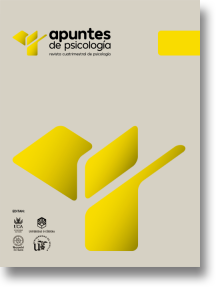Modalities of Child Labor in the Context of Family Life: Nine Cases of ChildWorkers in Honduras
DOI:
https://doi.org/10.55414/wrzs2758Keywords:
Types of child labor, Family context, Working conditions, Community preventionAbstract
This study examines the case of nine child workers in Honduras, exploring in depth the interaction between working conditions, the family context and the modalities of child labor. Three iterations of information collection were carried out, with 36 accumulated hours of qualitative interview. Each case was observed throughout eight months of implementation of a psychoeducational program, and a follow-up observation was made three months after the intervention ended. To triangulate the data, information was collected from parents, teachers, and program facilitators. The results showed that participation in household chores and collaboration with the family business had a lower potential psychological impact than shellfish fishing on foot or organizing tourist visits by boat. The Discussion reflects on the influence of family living conditions on the diversity of child labor modalities. Practical implications are also suggested for adapting preventive strategies to the type of family context.
Downloads
References
Adonteng-Kissi, O. (2023). Parental perceptions of the nature of child labour in rural and urban Ghana: Cultural versus economic necessity. Child Care in Practice, 29(2), 118-138. https://doi.org/10.1080/13575279.2020.1868407
Ahad, M.A., Parry, Y.K. y Willis, E. (2021). The prevalence and impact of maltreatment of child laborers in the context of four South Asian countries: A scoping review. Child Abuse & Neglect, 117, 105052. https://doi.org/10.1016/j.chiabu.2021.105052
Basu, K. y Van, P.H. (1998). The economics of child labor. American Economic Review, 88(3), 412-427. https://www.jstor.org/stable/116842
Emerson, P.M. y Portela Souza, A. (2007). Is child labor harmful? The impact of working earlier in life on adult earnings. IZA Discussion Paper, 59(2), 3027. https://doi.org/10.1086/657125
Fan, C.S. (2011). The luxury axiom, the wealth paradox, and child labor. Journal of Economic Development, 36(3), 25-45. https://ideas.repec.org/a/jed/journl/v36y2011i3p25-45.html
Holgado, D., Maya-Jariego, I., Palacio, J. y Oviedo-Trespalacios, O. (2016). Two profiles of child labor in the Colombian Caribbean coast: relocated children to suburban areas compared to the key role of social and labor characteristics of mothers in urban settings. En G. Tonón (Ed.), Indicators of quality of life in Latin America (pp. 251-273). Social Indicators Research Series (vol. 62). Springer. https://doi.org/10.1007/978-3-319-28842-0_11
Holgado, D., Maya-Jariego, I. Palacio, J., Ramos, I., Oviedo-Trespalacios, O. Romero-Mendoza, V. y Amar, J. (2014). Impact of child labour in academic performance: Evidence from the program “Edúcame Primero, Colombia”. International Journal of Educational Development, 34, 58-66. https://doi.org/10.1016/j.ijedudev.2012.08.004
INE (2023). Septuagésima sexta encuesta de hogares de propósitos múltiples (EPHPM). Tegucigalpa, Honduras.
Liddell, C. (2002). Emic perspectives on risk in African childhood. Developmental Review, 22(1), 97-116. https://doi.org/10.1006/drev.2001.0537
Maya-Jariego, I. (2021). Community prevention of child labor: Evidence-based practices to promote the psychological wellbeing of minors. Springer International Publishing. https://doi.org/10.1007/978-3-030-70810-8
Organización Panamericana de la Salud (2009). Salud familiar y comunitaria. OPS/OMS. https://iris.paho.org/bitstream/handle/10665.2/33919/CD49-20-s.pdf
Patrinos, H.A. y Psacharopoulos, G. (1997). Family size, schooling, and child labor in Peru. An empirical analysis. Journal of Population Economics, 10(4), 387-405. https://doi.org/10.1007/s001480050050
Woodhead, M. (2004). Psychosocial impacts of child work: A framework for research, monitoring and intervention. The International Journal of Children’s Rights, 12(4), 321-378. https://doi.org/10.1163/1571818043603607
Downloads
Published
Issue
Section
License
Copyright (c) 2024 Apuntes de Psicología

This work is licensed under a Creative Commons Attribution-NonCommercial-NoDerivatives 4.0 International License.


















